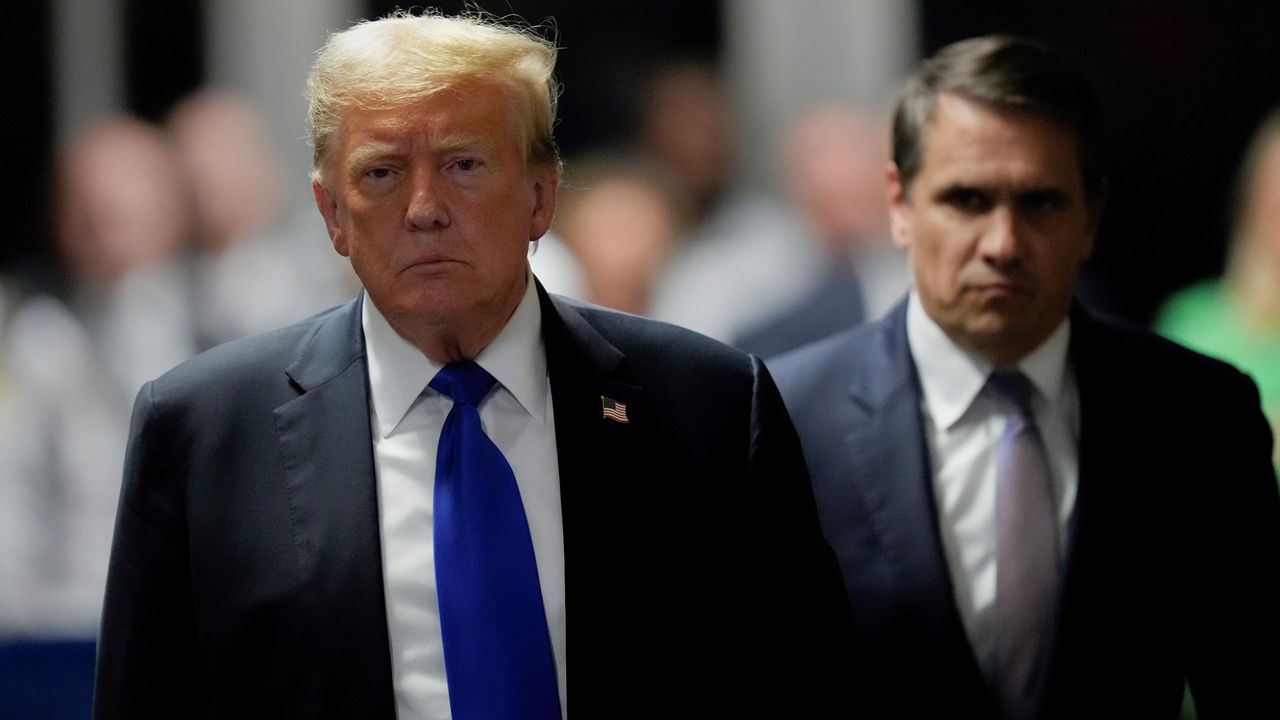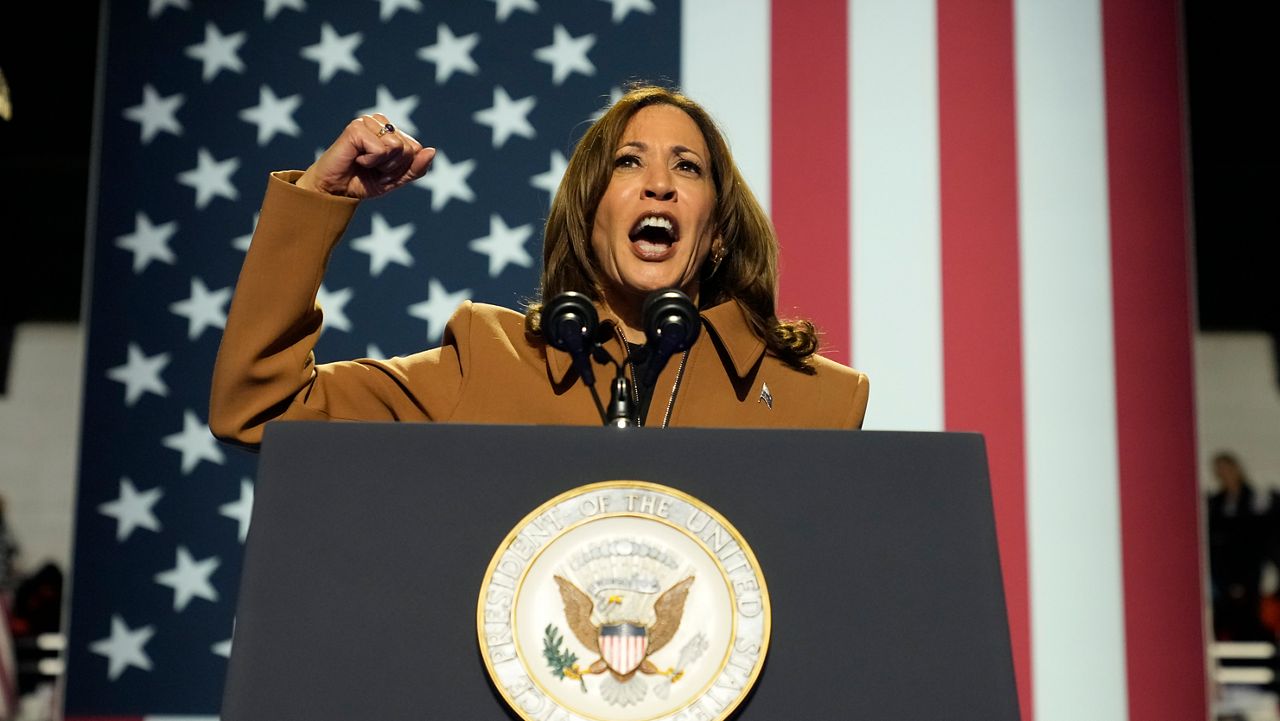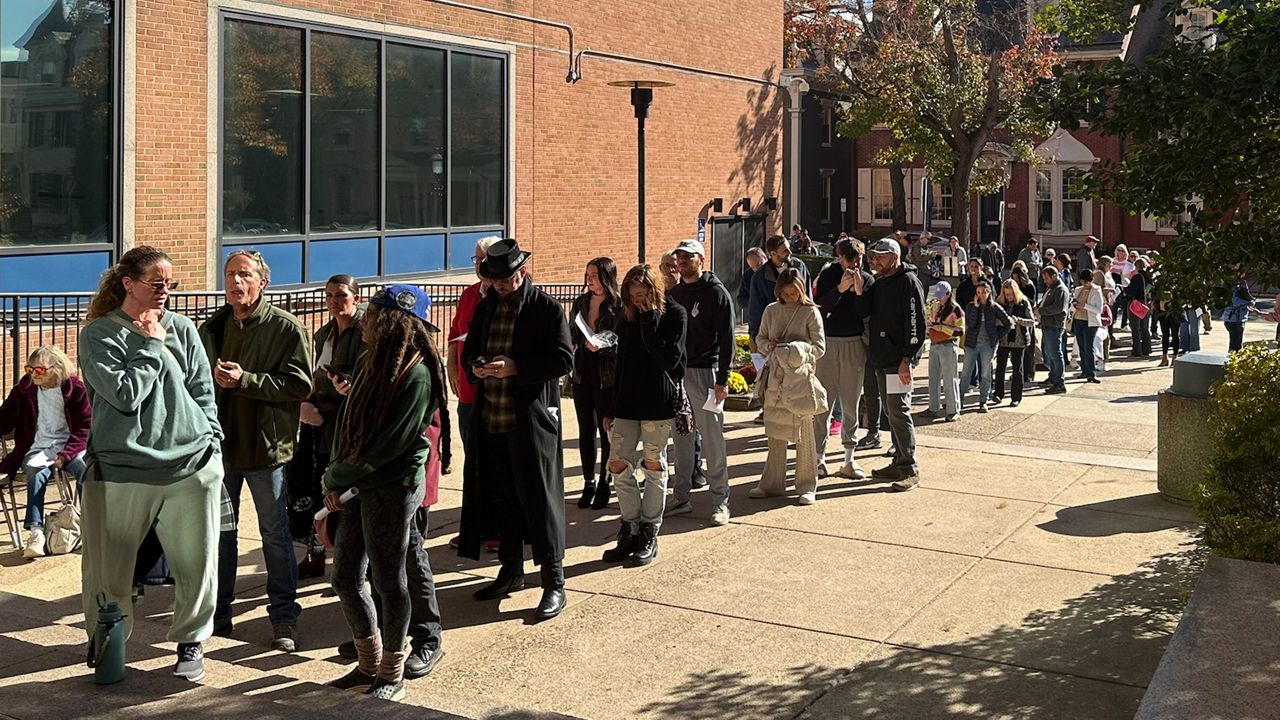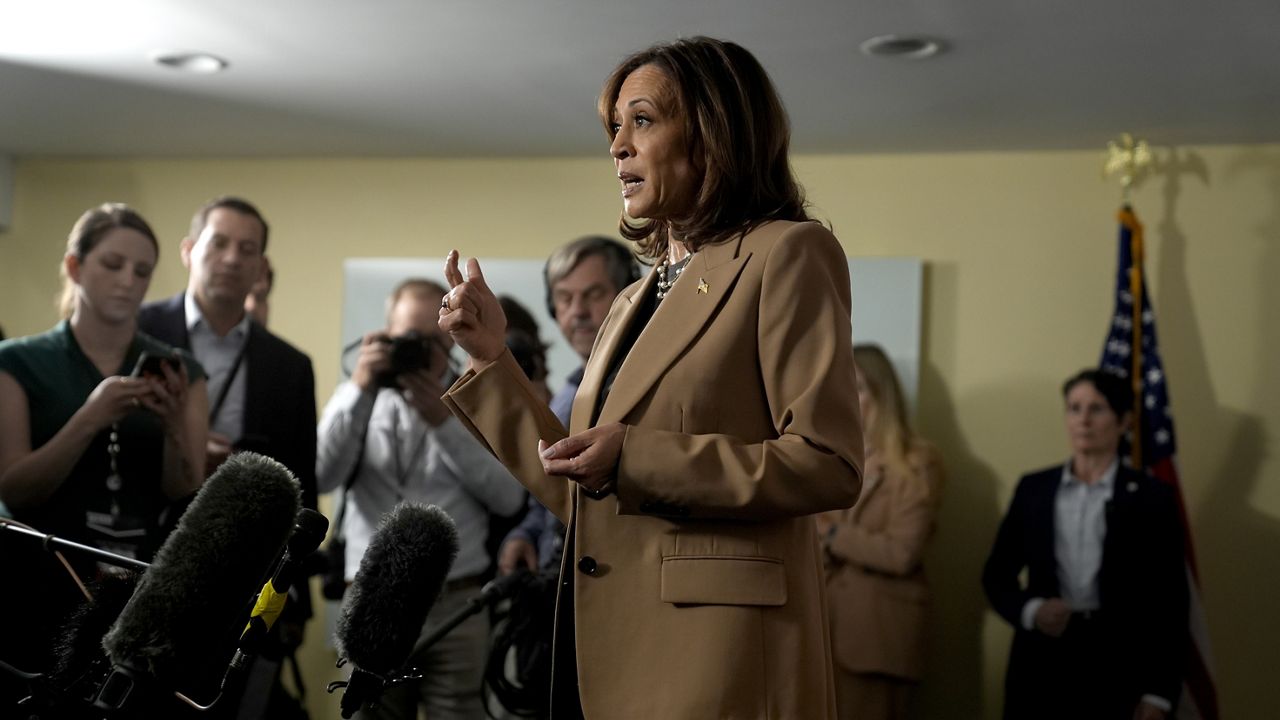At the first Republican debate of the 2024 cycle in Milwaukee last week, several GOP presidential hopefuls made it clear that religion is part of their pitch.
“I have faith that God is not done with America yet,” said former Vice President Mike Pence.
“Our nation was founded upon the Judeo-Christian values that [have] made this the greatest nation on God's green earth,” South Carolina Sen. Tim Scott added.
“This is our moment to revive those common ideals. God is real,” declared entrepreneur Vivek Ramaswamy.
It was a not-so-subtle reminder that religious voters, specifically Christians, are a key bloc of the Republican Party.
A survey from the Pew Research Center found that 59% of voters who frequently attend religious services backed Donald Trump over Joe Biden in the 2020 election.
Throughout the summer, Spectrum News spoke with experts, advocates, and voters to explore the role religion is playing for Republicans in the 2024 election cycle.
Despite Pew finding that the number of Americans who identify as Christian has dropped from 90% to 63% in the last three decades, the GOP still sees it as worthwhile to cater to this group.
“Levels of church attendance are lower than they once were,” said Professor Matthew Wilson, a political scientist who studies the politics and voting behavior of religious voters at Southern Methodist University in Texas. "More people self-identify as non-religious than was once the case. At the same time, it is still true that most of the American voting public considers itself to be Christian."
Wilson said the majority of religious voters have gravitated toward the Republican Party in recent years, while non-religious voters lean more Democratic.
“So now, looking at someone's level of religious commitment tells you more about their likely partisan allegiance than just about anything else you could know,” Wilson told Spectrum News. “That is certainly true among white voters, African Americans are a bit of an exception to this pattern.”
In June, nearly every major Republican candidate spoke at the annual Faith and Freedom Coalition conference in Washington, D.C., billed as the largest gathering of Christian activists in the nation.
One by one, the candidates talked up their opposition to abortion on the one-year mark of the Supreme Court overturning Roe v. Wade. The ruling returned the issue of abortion to the states, which have enacted a patchwork of bans of varying lengths throughout the country.
Some candidates have pledged to go even further, calling for nationwide bans on abortion.
“Every Republican candidate for president should support a ban on abortion before 15 weeks as a minimum nationwide standard,” Pence said at the event.
Tim Head, the coalition’s executive director, told Spectrum News the group’s members care deeply about abortion, marriage and family, and school choice. He said these issues, among others, motivate who they will vote for.
“We believe that, historically, coming up right at 250 years now, that faith has not only been a bedrock foundational principle for the founding of this country, but it’s also been a consistent ribbon that we believe has actually strengthened this country,” Head said.
Republican candidates have also flocked to the Iowa State Fair this summer, taking delivering their messages in stump speeches and "Fair-Side Chats" with Iowa Gov. Kim Reynolds. (White House hopefuls like Florida Gov. Ron DeSantis, former VP Pence and Sen. Scott in particular have spent a lot of time campaigning in the Hawkeye State in hopes of winning over the many Evangelical voters there.)
Spectrum News asked Iowa State Fair attendees and prospective Republican caucusgoers about how much faith factors into who they will support for president.
“How you see God and how you see yourself affects everything else you do, whether you believe in him, whether you don’t believe in him,” said Samona Yentes. "So yes, it would be very important."
Vaibs Srikaran, an Iowa resident who showed up to hear Ramaswamy speak, said his Hindu faith has often left him factoring out religion when deciding who to vote for.
“I’m a Hindu, so for me, I often have no skin in the game,” he said. “Vivek’s actually the closest thing we have to God and religion on the presidential ticket, so no, it doesn’t play a factor for me at all.”
After Pence spoke on the Des Moines Register’s Political Soapbox stage, Iowan Tyler Jones weighed in.
“It’s not a major thing for me at the moment, but as the caucus goes along, I think it will become more of a trait for me in a candidate that I would look for,” he said.
At another fair event, Jerrie Pegg brought up former President Donald Trump.
“I’m religious, but no," she said. "Their views on religion don’t matter. And Trump certainly – he wants to pretend that he’s religious but I don’t believe it with the way he treats people."
Trump was elected in 2016 in large part thanks to evangelical Christian voters rallying behind him, even though Professor Wilson noted he was an odd fit for them.
“He's not particularly religious or devout himself,” Wilson said of Trump. “He certainly does not have a long background or track record of caring about Evangelical causes. But during his presidency, he was actually very much a champion of many of the core issues that evangelicals really care about.”
Some of those issues include nominating three conservative justices to the Supreme Court, which ultimately led to the overturning of Roe v. Wade, and recognizing Jerusalem as Israel’s capital and moving a U.S. embassy there.
Wilson said while Pence is a devout Christian and would seem a more natural choice for evangelicals to rally behind, he said religious voters have largely stayed supportive of Trump, especially as the Republican Party infrastructure continues to defend him, despite his scandals and legal troubles.
“That has really caused a lot of voters, evangelicals included, to put some of their normal inclinations on the back burner,” Wilson said. “That Trump just is front and center in their consciousness.”
Like so many aspects of today’s politics, a big question heading into 2024 is whether Trump can maintain his base of supporters to win the GOP nomination.
Whether religious voters stick with him or move on will be a big factor.









